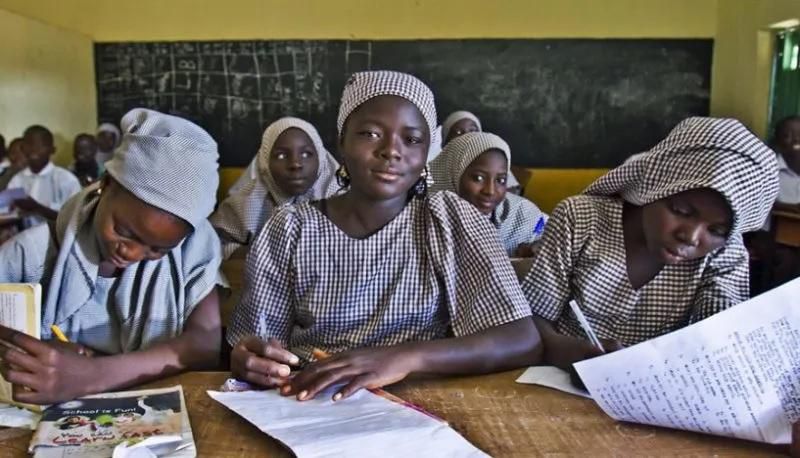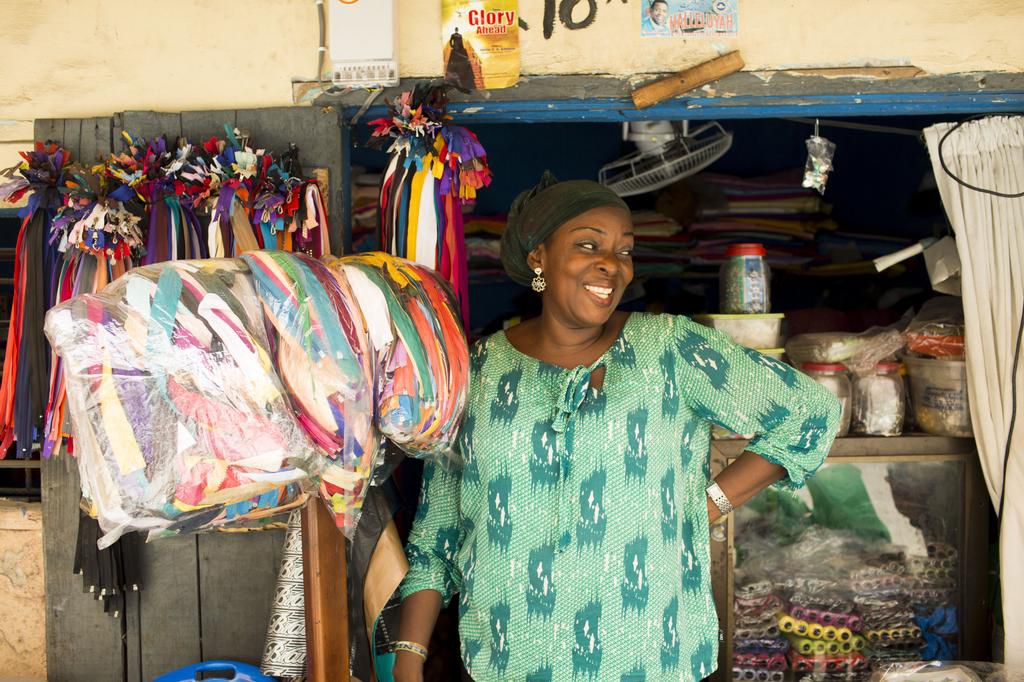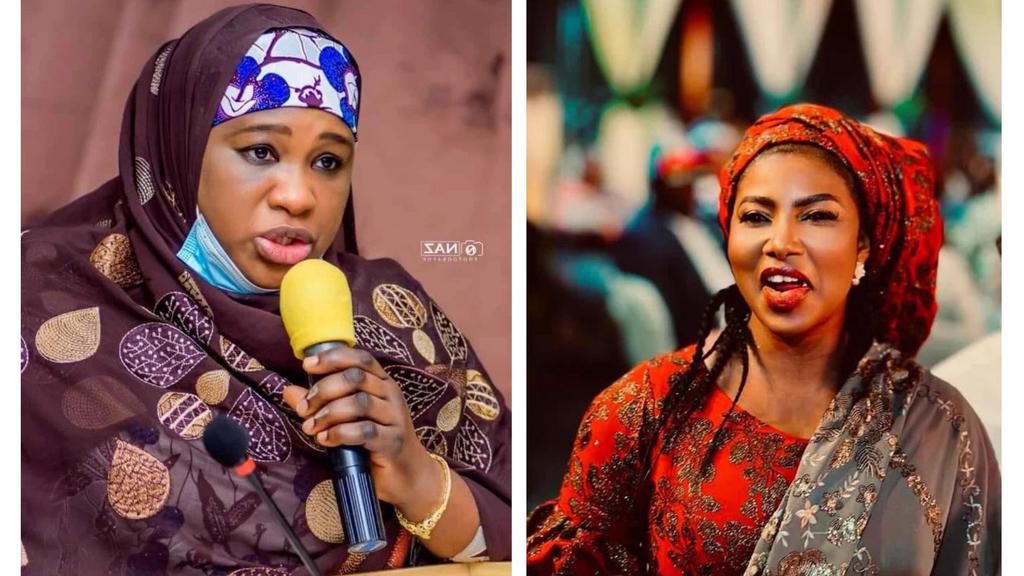15 reasons women still lose elections in Nigeria
![96% of female candidates in 2023 general elections crashed out [Daily Trust]](https://image.api.sportal365.com/process/smp-images-production/pulse.ng/26072024/1b953d0f-48db-45b2-9907-4174965b5ddf?operations=autocrop(700:467))
In a nation where women's political activism thrives and they comprise around 60 percent of campaign and election audiences, one would naturally anticipate a robust representation of women in elected positions. However, the reality in Nigeria presents a stark contrast.
We have already established that Nigerian politics is designed to play women dirty, however, several factors contribute to this disparity, hindering women from winning elections despite their active involvement in politics.
Delving into an insightful survey by the News Agency of Nigeria (NAN), we uncover the intricacies that contribute to women's struggles in clinching electoral victories, ranging from deeply ingrained cultural values to economic disparities.
This article sheds light on the multifaceted reasons behind why women often face challenges when vying for elective offices in Nigeria.
1. Traditional and cultural values
![Hausa woman getting married [Northern life]](https://image.api.sportal365.com/process/smp-images-production/pulse.ng/26072024/67bd7c79-753c-4db8-a83f-c81b03918db9)
Deep-seated traditional and cultural beliefs relegate women to domestic roles, limiting their active participation in politics. These age-old notions often clash with the idea of women holding powerful political positions.
2. Illiteracy

The prevalence of illiteracy in Nigeria, particularly among women, hampers their ability to fully engage in politics. Without proper education, women may lack the knowledge and confidence to participate effectively or advocate for their rights.
3. Religious factors
Religious beliefs and practices sometimes restrict women's political involvement, creating barriers that prevent them from taking on leadership roles or participating in electoral processes.
4. Economic challenges

Women's poorer economic standing can hinder their chances of running successful election campaigns. Politics requires financial resources, and many women may struggle to compete financially, making it difficult for them to win elections.
5. Late-night meetings versus domestic duties
The demanding nature of political engagement, including late-night meetings and extended events, can clash with women's domestic responsibilities, making it challenging for them to balance both aspects of their lives. In an interview with Khadijah Okunu-Lamidi, a presidential aspirant in the 2023 elections, she explained to Pulse that she was challenged by mummy duties, buth thankful to have a helping husband and hands. However, she noted that as a mother, all hands in the world would not be enough if she herself is not present with the kids.
6. Perceived immorality and harassment
There is a perception that women in politics might face moral compromises or sexual harassment, which can discourage both female candidates and voters. This perception negatively affects women's electoral prospects.
7. Male control and influence
![President Muhammadu Buhari conferred National Honours on President-Elect Asiwaju Bola Tinubu and VP-Elect, Sen. Kashim Shettima on Thursday, May 25, 2023. [Presidency]](https://image.api.sportal365.com/process/smp-images-production/pulse.ng/26072024/9dedaded-c801-4aea-91b4-84318b752433)
In some communities, women's political decisions and affiliations are heavily controlled by men, leading to limitations on their choices and actions during elections.
8. Financial constraints
Running for office requires significant financial resources, which many women lack due to societal inequalities and limited access to funds.
9. Lack of trust and support among women

A lack of mutual trust and support among women can undermine their collective efforts, making it harder for them to rally behind female candidates. For instance Binta Umar, the lone female governorship candidate of the Action Alliance (AA) in Jigawa State, blamed the abysmal performance of female candidates to lack of cooperation by fellow women.
10. Gender stereotypes and self-perception
![Remi Tinubu kneels to greet Muhammadu Buhari [The Cable]](https://image.api.sportal365.com/process/smp-images-production/pulse.ng/26072024/7c14e47b-aa36-4216-b6b8-09f8f2772403)
Gender stereotypes can lead women to doubt their own capabilities, leading to lower confidence in contesting elections. Additionally, societal perceptions that women are weaker vessels might hinder their aspirations for political leadership.
11. Discrimination and suppression
Discriminatory attitudes and practices, including suppression of women's voices, can create barriers for female candidates, discouraging them from participating in politics.
12. Limited access to education
Educational limitations, including high illiteracy rates among girls in certain regions, can restrict women's ability to engage in politics effectively.
13. Crippling family obligations
Women often face significant family obligations that can limit their availability for political activities, making it harder for them to campaign and participate in electoral processes.
14. Cultural expectations and religious injunctions
![My wife is now for the other room - Tinubu jokes during acceptance speech. [Twitter:Channels]](https://image.api.sportal365.com/process/smp-images-production/pulse.ng/26072024/d5c2402a-a1d9-4c56-a34e-61115bb4695c)
Cultural norms and religious teachings that prescribe women's roles as primarily domestic can limit their opportunities for political leadership.
15. Environmental factors
Socioeconomic and environmental factors, such as lack of exposure to politics and limited opportunities, can contribute to women's underrepresentation in political leadership.

![Aisha blows hot on Security forces; Y7ou won't believe what she said [VIDEO]](https://image.api.sportal365.com/process/smp-images-production/pulse.ng/17082024/1f976edf-1ee2-4644-8ba1-7b52359e1a8f?operations=autocrop(640:427))
)
)
)
![Lagos state Governor, Babajide Sanwo-Olu visited the Infectious Disease Hospital in Yaba where the Coronavirus index patient is being managed. [Twitter/@jidesanwoolu]](https://image.api.sportal365.com/process/smp-images-production/pulse.ng/16082024/377b73a6-190e-4c77-b687-ca4cb1ee7489?operations=autocrop(236:157))
)
)
)
)
)
)
)
)
)
)
)